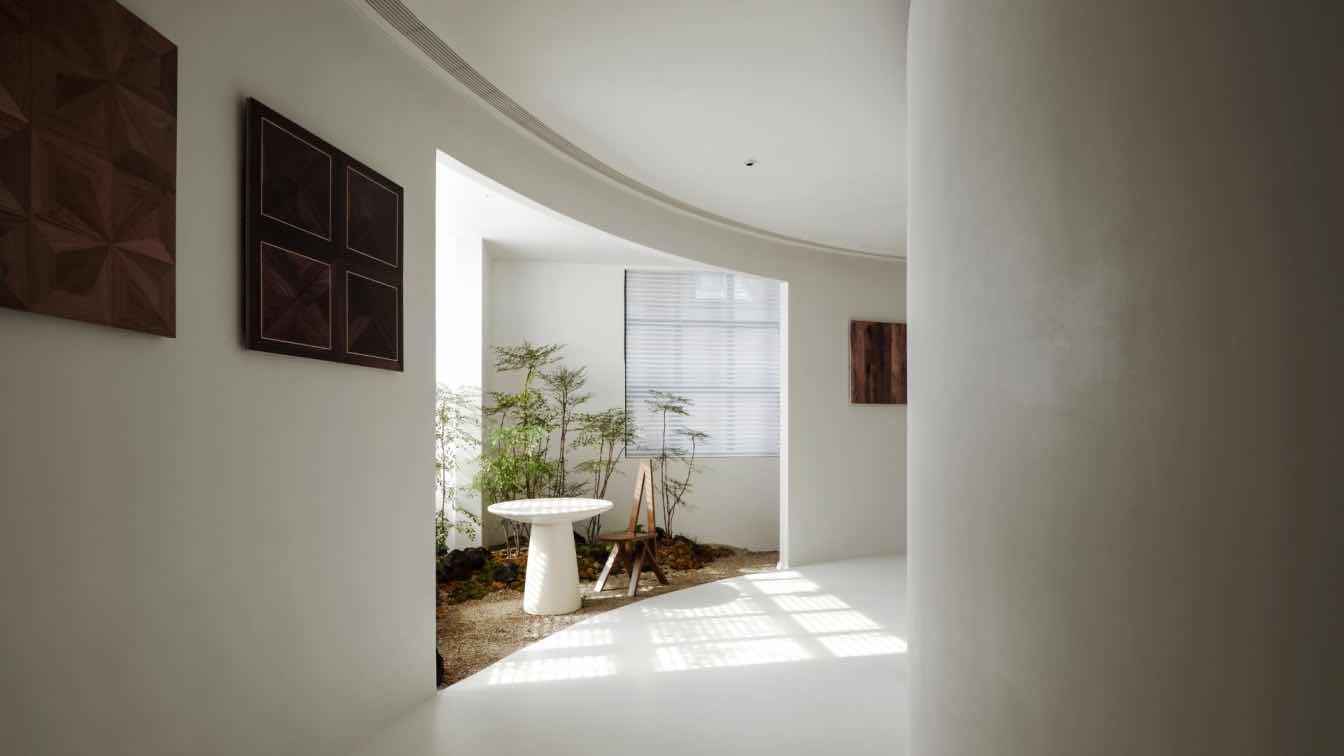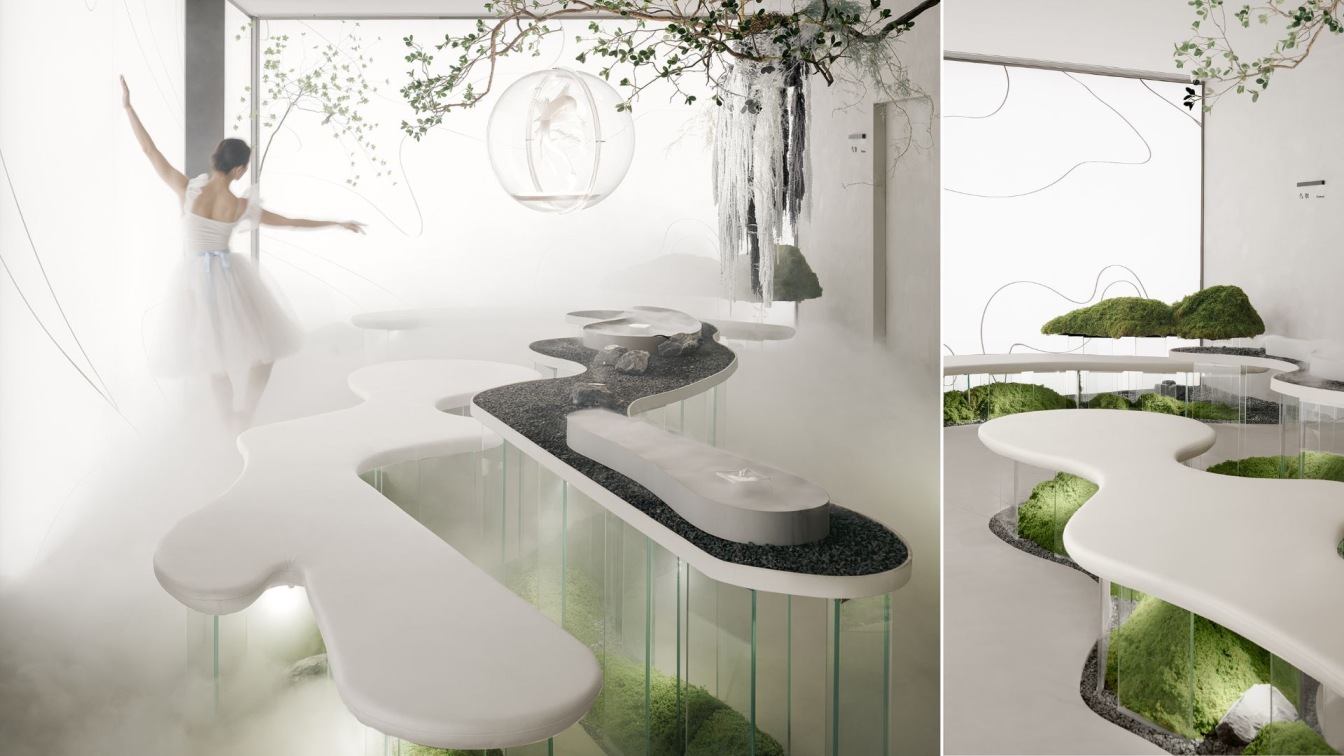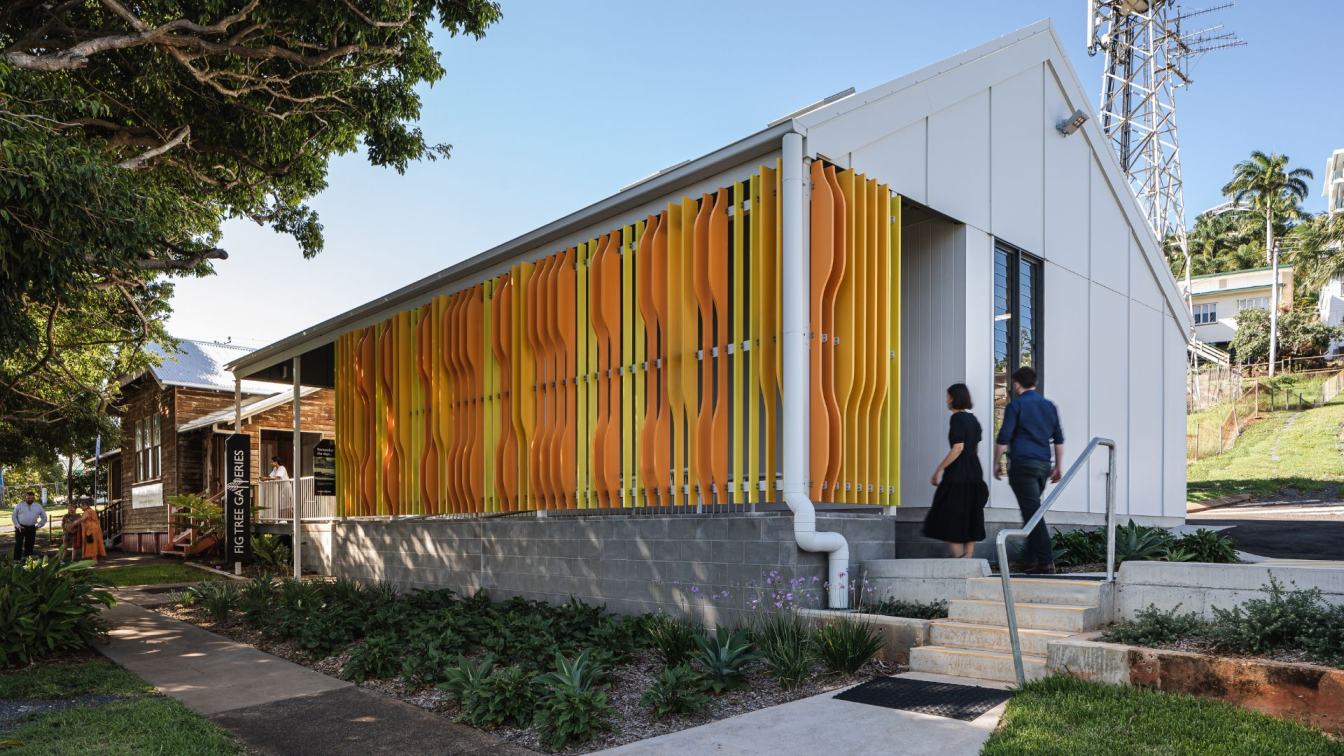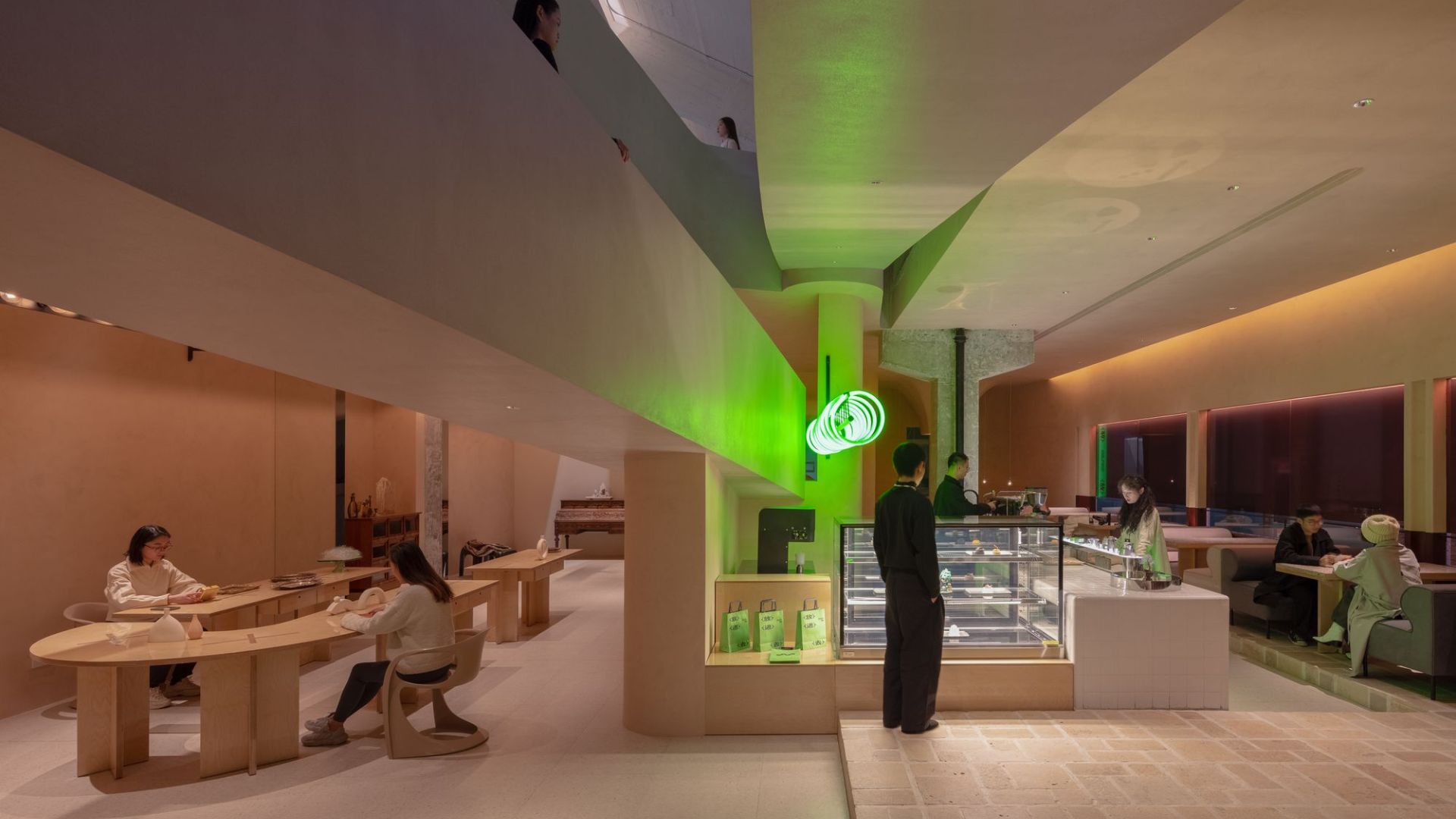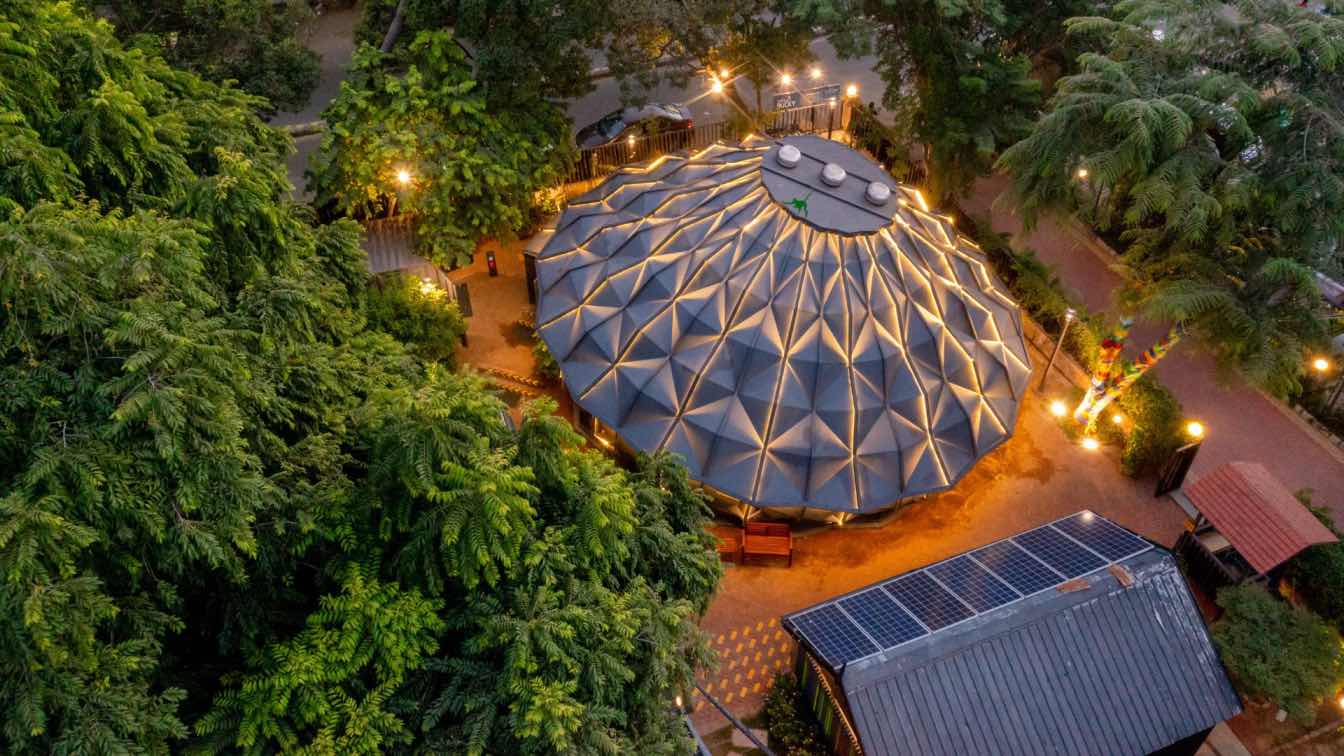Introduction: Moving Toward Curated Retail Experiences
TSPACE DESIGN: Against the backdrop of a slowing global economy, the retail industry is undergoing a profound transformation, moving away from pure product sales to an experience-driven model that emphasizes emotional connections with consumers.
The initial positioning of the project was as a showroom for a wood flooring brand. The designer aimed to elevate the space beyond the traditional, one-dimensional function of display and sales. Focusing on the customer experience and grounded in the brand’s core values, the design integrates the concept of an art gallery, creating an immersive environment that blends emotional engagement with the spirit of the space. This allows visitors not only to appreciate the aesthetic beauty of the wood flooring but also to connect with the deeper cultural meanings and values the brand seeks to convey. This approach marks a significant step toward adopting a curated, experience-driven business model.
1. Round Heaven, Square Earth
The project is located in Beijing, where the designer seeks to reflect the city's cultural essence through spatial design by incorporating local cultural elements. Inspired by the Hall of Prayer for Good Harvests at the Temple of Heaven, the designer introduces a cylindrical structure into the originally rectangular space. This central feature establishes a layout based on the traditional Chinese concept of "heaven is round, and earth is square," organizing the space into an "inner circle and outer square" configuration.
The traditional Chinese cosmology and philosophy of "round heaven and square earth" have deeply influenced the architectural layout of ancient Chinese buildings. Today, designers reinterpret this architectural beauty through modern design techniques, not only echoing the symbolic meaning of the circle in Chinese culture—representing perfection, wholeness, harmony, and eternity—but also embodying the philosophical idea of the unity between humanity and nature.

2. Circular Circulation
The gray space at the entrance, combined with the stepping stones, slows the pace of entry, allowing visitors to pause and gather themselves before fully entering. This area functions as a transitional space, intentionally creating a separation between the interior and exterior themes. As a result, it enhances both the privacy and the sense of layering within the space.
The main flow in the space is designed around the newly inserted volume. The entrance, formed by two curved walls, visually obscures the view of the entire space, preventing a complete view at once. Visitors are guided by the light and the movement line of the outer circle, leading them gradually into the exhibition hall. Suddenly, a spacious and bright circular exhibition hall reveals itself, creating a sense of openness and clarity.
Stepping out of the circular exhibition hall, visitors can quickly reach the exit by following the designer-planned movement line. In this compact space, the entrance and exit are thoughtfully arranged to create a circular flow through the exhibition hall. This design ensures a smooth and non-repetitive experience for visitors, from start to finish, without interruptions. The necessary functional areas within each section of the exhibition are also well-distributed, resulting in a multi-layered and multi-perspective spatial experience created by the designer.

3. Spirit of the Place
Unlike the straightforward product display logic of traditional exhibition halls, this space draws extensively on the design principles and curatorial approach of art galleries. It seamlessly integrates the spatial form with the exhibition content, creating a highly unified and cohesive environment.
By employing a uniform wall and floor paint, a clean and textured backdrop is created, resulting in a "white box" space akin to an art gallery. This "white box" approach helps eliminate excessive technical information displays. The wooden flooring, transformed from a conventional building material into an "artwork" due to its presentation, shifts the focus to the aesthetic value derived from the wood's rich natural textures and their evolution.
Upon entering the space, visitors encounter a floor gallery corridor where they can closely examine every detail of the flooring, including its texture, knots, cuts, and finishes. This allows them to appreciate the intricate handiwork of nature and time, as well as humanity’s endless pursuit of beauty.
The atrium area, as the core of the product display, creates an absolute spiritual space through its central enlarged column design and the layout of curved display panels. Combined with the skylight effect simulated by the overhead lighting film, it allows visitors to deeply experience the sacredness and tranquility that the space evokes, enhancing their focus and appreciation of the environment.
In the meeting area by the window, sunlight floods in through the glass, and plants grow naturally. The combination of sunlight and greenery creates a vibrant courtyard-like atmosphere, blurring the boundary between the interior and exterior spaces.
Conclusion
The Wood Gallery, as a unique example of curated commercial practice, not only redefines the possibilities of brand showrooms but also deepens the interaction between consumers and brands. It elevates the ordinary building material of wood flooring, transforming it into an artistic medium for conveying brand stories and cultural values. This represents not just an innovation in product presentation but also a significant exploration for traditional brands seeking transformation and upgrade. When a commercial space resonates with people and touches their hearts, it has the potential to pioneer new commercial models in a competitive market.


































